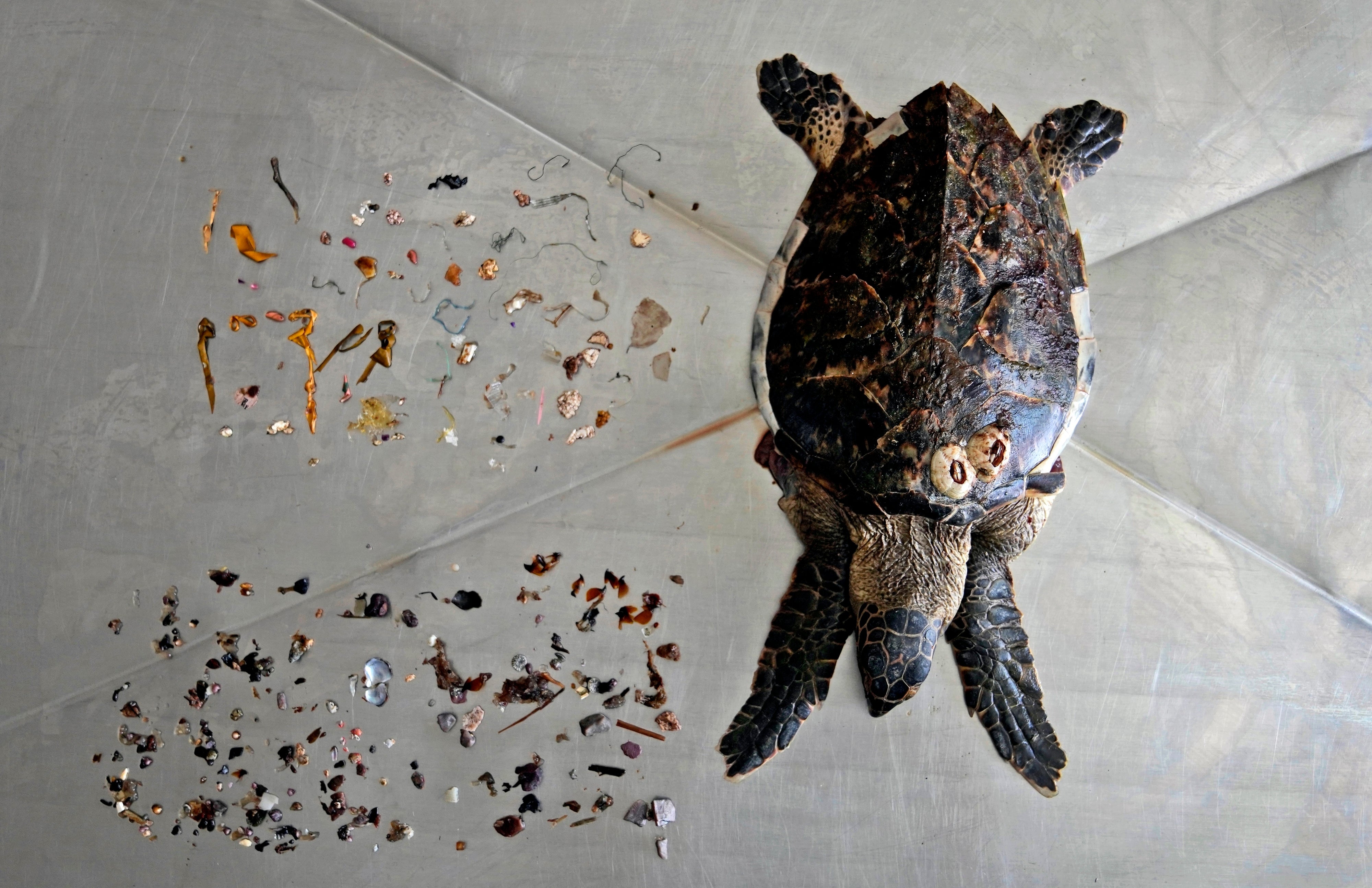Plastic pollution in oceans on track to rise for decades
Plastic pollution at sea is reaching worrying levels and will continue to grow even if significant action is taken now to stop such waste from reaching the world’s oceans

Your support helps us to tell the story
This election is still a dead heat, according to most polls. In a fight with such wafer-thin margins, we need reporters on the ground talking to the people Trump and Harris are courting. Your support allows us to keep sending journalists to the story.
The Independent is trusted by 27 million Americans from across the entire political spectrum every month. Unlike many other quality news outlets, we choose not to lock you out of our reporting and analysis with paywalls. But quality journalism must still be paid for.
Help us keep bring these critical stories to light. Your support makes all the difference.
Plastic pollution at sea is reaching worrying levels and will continue to grow even if significant action is taken now to stop such waste from reaching the world's oceans, according to a review of hundreds of academic studies.
The review by Germany s Alfred Wegener Institute, commissioned by environmental campaign group WWF examined almost 2,600 research papers on the topic to provide an overview ahead of a United Nations meeting later this month.
“We find it in the deepest ocean trenches, at the sea surface and in Arctic sea ice," said biologist Melanie Bergmann who co-authored the study, which was published Tuesday.
Some regions — such as the Mediterranean the East China and Yellow Seas — already contain dangerous levels of plastic, while others risk becoming increasingly polluted in the future, it found.
The authors concluded that almost every species in the ocean has been affected by plastic pollution and that it’s harming important ecosystems such as coral reefs and mangroves.
As plastic breaks down into ever-smaller pieces it also enters the marine food chain, being ingested in everything from whales to turtles to tiny plankton.
Getting that plastic out of the water again is nearly impossible, so policymakers should focus on preventing any more of it entering the oceans in the first place, said Bergmann.
Some of the studies showed that even if this were to happen today, the amount of marine microplastic would keep increasing for decades, she said.
Matthew MacLeod, a professor of environmental science at Stockholm University who was not involved in the report, said it appeared to be a sound review of existing studies, focused on the effects of plastic pollution.
“The part that can (and will) be argued about is whether there is enough evidence to warrant aggressive action (such as what is advocated in this report) that will certainly disrupt current practices for plastic production, use and disposal,” he said.
MacLeod was involved in a separate study recently that also concluded immediate measures are required because of the possible global impacts.
Heike Vesper of WWF said while consumers can help reduce plastic pollution by changing their behavior, governments have to step up and share the burden of tackling the problem.
“What we need is a good policy framework,” she said, looking ahead to the upcoming U.N. environmental meeting in Nairobi “It’s a global problem and it needs global solutions.”
Subscribe to Independent Premium to bookmark this article
Want to bookmark your favourite articles and stories to read or reference later? Start your Independent Premium subscription today.